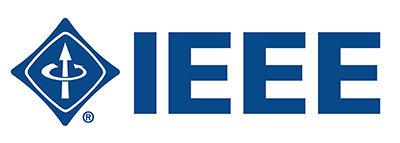
Average Pay Raises Remain Below 4%
By Robert Shew
For the fourth consecutive year, annual pay raises budgeted by U.S. companies for 2006 were below 4%, and are expected to remain at that level next year, according to a recent survey by the Conference Board.
Average salary increases this year were 3.5% for most employee groups in most industries, including manufacturing, retail and wholesale trade, and utilities, the New York-based private research organization said in its annual survey of salary increase budgets.
“Moderate inflation has allowed employers to continue to control payroll costs,” said Charles Peck, Conference Board compensation specialist. “This continued control is reflected in the pattern of salary increase budgets this year compared with last year’s projections.”
The rate of inflation should remain below the salary increase budgets this year and next, Peck said. The Conference Board estimated a 3.1% increase in inflation for 2006 and a 3.3% increase for 2007.
The annual survey covers 441 major companies in seven broad industry sectors. Respondents are asked what salary increases they have actually included in their budgets for the current calendar year and their estimate for next year.
By industry, the 2006 median salary increase was 3.5% in the commercial banking, diversified services, manufacturing, trade, and utilities industries for both nonexempt employees — typically clerical and other workers who are subject to the overtime pay requirements of the Fair Labor Standards Act — and exempt employees, including professionals, administrative employees, and supervisors who are exempt from such coverage. The 2006 median salary increase was 3.7% for both groups in the diversified financial-services industry. In the insurance industry, the median salary increase was 3.8% for nonexempt employees and 3.9% for exempt employees.
The only industry whose actual 3.5% increase in 2006 was significantly below the estimate made last year was diversified services, where pay gains were forecast to rise 3.8% for nonexempt workers and 4% for exempt employees.
Looking ahead to 2007, the surveyed companies estimated a median salary increase of 3.8% for executives and 3.5% for nonexempt and exempt employees across all industries.
Among industries, the 2007 estimated increases for nonexempt workers were 3.5% in commercial banking, manufacturing, trade, and utilities; 3.6% in diversified services; 3.9% in insurance; and 4% in diversified financial services.
Employer Compensation Costs
Wages are one part of the compensation picture. Benefits are another part of the picture.
The Labor Department’s Bureau of Labor Statistics recently reported on employer compensation costs, which includes benefits provided to employees as well as wages.
Private sector employer costs for employee compensation averaged $25.09 per hour in March, according to first-quarter data released by BLS.
These costs were up 38 cents from the average of $24.71 per hour reported for December 2005, BLS said.
Wages and salaries, which averaged $17.73 per hour in the final month of the first quarter, accounted for 70.7% of private sector employer compensation costs, BLS said, up slightly from $17.51 per hour in December 2005. Benefits averaged $7.36, or 29.3% of costs, up from $7.20 per hour in the previous quarter.
The employer cost data are derived from the agency’s National Compensation Survey.
Employers’ costs for employee benefits in March included $1.71 per hour worked for paid leave (6.8% of total compensation), 73 cents for supplemental pay (2.9%), $1.85 for insurance benefits (7.4%), 91 cents for retirement and savings (3.6%), and $2.15 for legally required benefits — including Social Security, Medicare, unemployment insurance and workers’ compensation (8.6%).
By occupational group, employees in management, professional, and related occupations in March received $44.32 in total compensation — $31.43 (70.9%) in wages and salaries and $12.89 in benefits (29.1%) — while service workers received an average of $12.30 in total compensation — $9.26 in wages and salaries (75.3%) and $3.03 in benefits (24.7%), including 77 cents for health insurance (6.2%).





